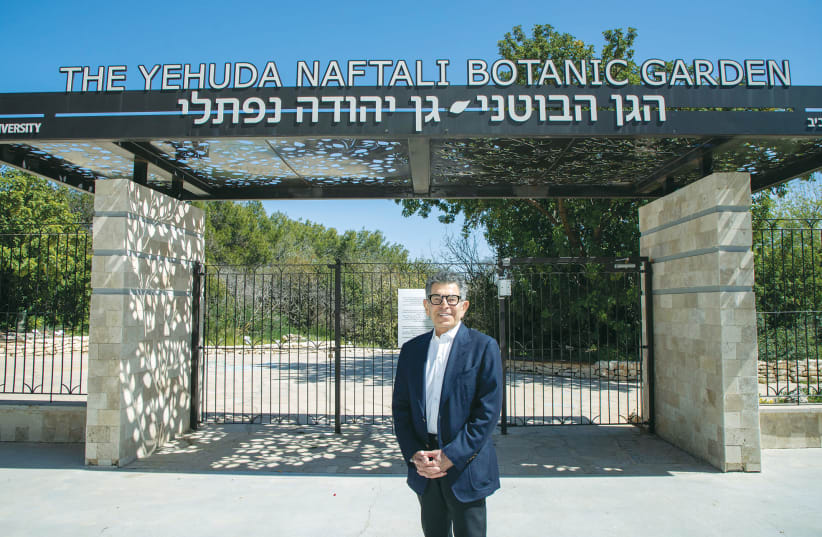An oasis in the urban landscape, Tel Aviv University’s Yehuda Naftali Botanic Garden, headed by Dr. Yuval Sapir, is a vital and valuable resource for nature conservation and education. Sapir explains that the botanic garden, established in 1972, serves a threefold purpose at the university.
“The first goal of the botanic garden is to conduct research,” he states. “We are standing on the frontier of science. We advance botanical research, ecological research, and plant genetics.” Sapir adds that the Yehuda Naftali Botanic Garden is a research institute within the university’s School of Plant Sciences and Food Security. For example, he says that the genome of emmer wheat, an ancient hulled variety of the grain, was sequenced from a plant that grew in the Naftali Botanic Garden. Sapir’s laboratory in the garden is studying flowers and their evolution.
The botanic garden is also used as an educational resource for the general public. Groups of students from elementary and high schools visit the garden and learn about ecology, plant evolution, and the importance of plants to humanity, nature, and ecosystems.
In addition, the garden plays a valuable role in the conservation of endangered plants. Sapir says that there are some 400 species of plants in Israel that are at risk of extinction. “We study their biology, how to reproduce them, how to propagate them, and how to reintroduce them.”
Among the vanishing Israeli species being studied are the Iris atropurpurea, the coastal iris, and Rumex rothschildianum, which was named in honor of Baron Edmond de Rothschild.
Recent additions to the botanic garden include a modern research greenhouse, new infrastructure, an improved system of roads and trails, a new entrance, improved signage, and other features designed to enrich the overall visitor experience. The renovations were supported by entrepreneur Yehuda Naftali, who is being awarded a TAU Honorary Doctorate this year.
The garden includes 4,000 different plant species, the largest number of any botanic garden in Israel. It has one of the biggest collections of Israeli plants, organized by the different ecosystems present in the country, and features an extensive collection of succulents. Another unusual feature is the garden’s lab for studying roots, which enables visitors to stroll among the roots of plants, beneath the surface where they have been planted.
“If you are walking around the garden, looking at the plants, and enjoying the greenery, you can almost forget that we are situated above the Ayalon Highway,” Sapir smiles. “We are in the middle of the city but in a very relaxing place.”
The Environment and Climate Change portal is produced in cooperation with the Goldman Sonnenfeldt School of Sustainability and Climate Change at Ben-Gurion University of the Negev. The Jerusalem Post maintains all editorial decisions related to the content.
